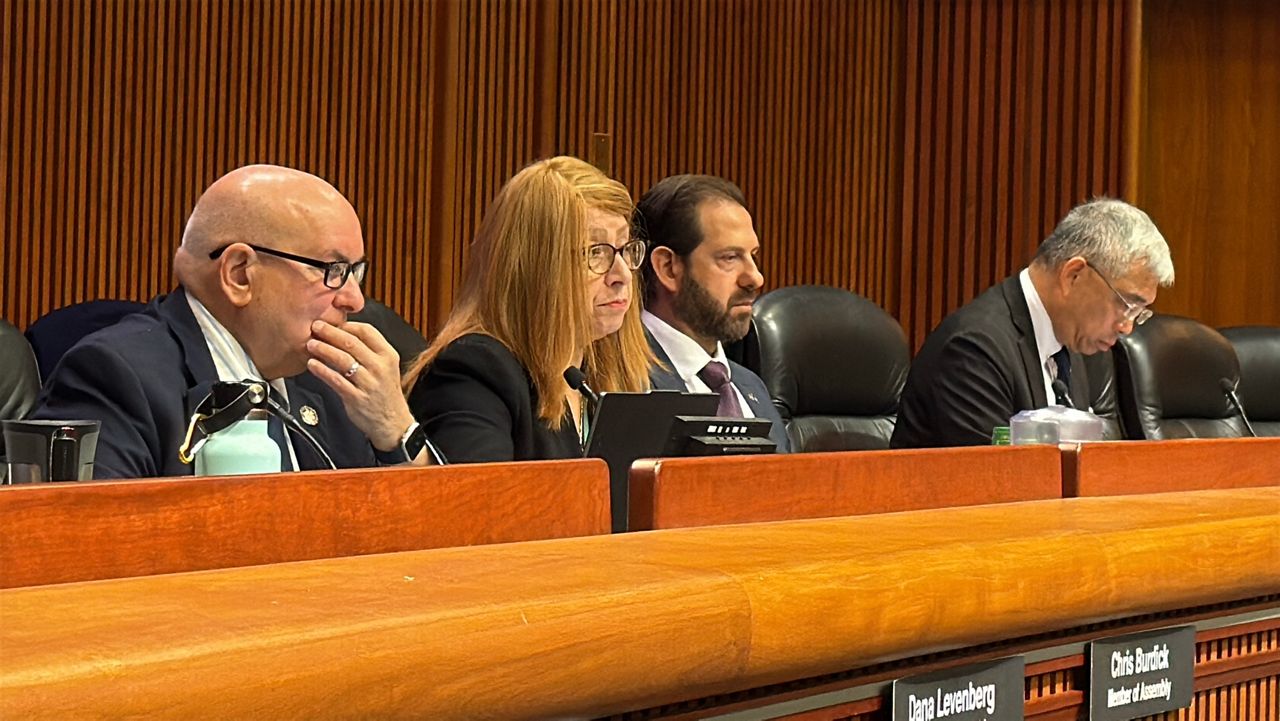A handful of upstate cities, towns and villages have capped rent increases, but some New York Democrats plan to make it easier for localities outside the five boroughs to opt in to rent stabilization — a change they said will combat rising homelessness.
New York’s housing shortage isn’t getting better as rents continue to climb, vacant properties surge and emergency housing overflows.
With a difficult state budget cycle and a mounting deficit on the horizon, progressive Democrats in Albany said they’ll prioritize expanding rent stabilization outside New York City — or an affordability bill that wouldn’t increase costs to the state.
“Rent stabilization helps keep people in their communities and rent is out of control in a lot of parts of the state,” Assembly Housing Committee chair Linda Rosenthal told Spectrum News 1.
A bill that didn’t pass this session would make it easier for upstate localities to opt in to rent hikes. The Rent Emergency Stabilization for Tenants, or REST, Act would help enable that greater local control.
Current law requires localities to undertake a costly vacancy study to declare a housing emergency and impose rent control.
“We can’t use the old way of doing things, for example [exempting] buildings built before 1974, things like that,” Rosenthal said.
Changes in last year’s budget expanded limits on rent increases in the city, but housing advocates argue several barriers dissuade upstate localities from opting in.
Genevieve Rand, a tenant from Ithaca with Housing Justice For All, told lawmakers she’s spoken with tenants across upstate. She recounted a town hall in Ithaca about limiting rent increases where most attendees said if their rent was stabilized, they’d spend the extra money on health care.
“These people came to a town hall about rent stabilization in my city because they can’t afford to go to the doctor,” Rand told lawmakers during testimony.
Landlords argue the policy will reduce housing stock, but Syracuse city auditor Alexander Marion said that hasn’t happened in cities like New York that have had it for years.
“While we know it’s not perfect in New York City, there are certainly ways for people to get the apartments that they need and stay in those apartments long-term,” said Marion, a Democrat. “It’s a matter of making sure we have the right balance of building code enforcement and tenant protections available.”
The city of Kingston has opted in to rent control. Common council member Michele Hirsch, a Democrat, told lawmakers it’s working, and should be expanded across the state.
“Rents are still just continuing to climb and whatever tools the state can give us to help expand the Emergency Tenant Protection Act to house more people or even keep the Emergency Tenant Protection Act in place so that we are not susceptible to ongoing lawsuits,” she said.
But landlords and housing providers are against more rent control upstate, and were not shy about telling lawmakers. They argue rent stabilization outside the city will not incentivize property owners to keep housing affordable.
“This is not a landlord’s problem. This is society’s problem,” said Kenneth Finger, chief counsel Building and Realty Institute of the Hudson Valley. “if society increases the amount of money, if the state increases the amount of money, if the communities increase the amount of money, there will be more affordable housing. You can’t say that only the multifamily homeowner or property owner is required to do that.”
Landlords and builders fought hard against tenant protections adopted last year that make it more difficult to evict a tenant without “good cause.” They walked back that opposition Tuesday — telling lawmakers provisions of the Good Cause Eviction Law aren’t as bad as they expected.
But Richard Lanzarone, executive director of Housing Providers of New York State Inc., fears expansion will cause landlords’ loans to be denied to maintain units.
“If you go to the bank, the bank’s going to say wait a minute, 15 years from now, this [rent-stabilized] building will be worth less money than is still left on the loan, so the building is going to be underwater,” Lanzarone said. “Why would I make such a loan?”

